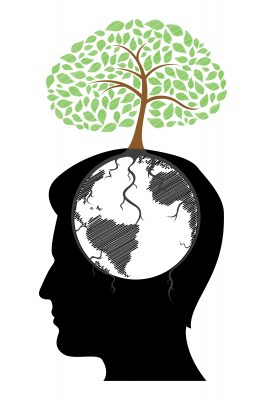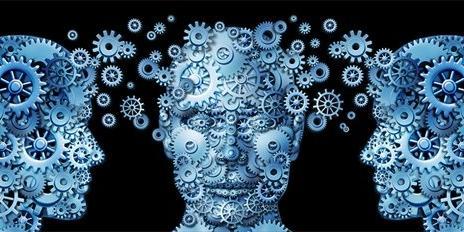Knowledge is Power. You know this. Humanity has known this for a long time. The earliest documented instance of the phrase “knowledge is power” dates back to the 7th century, and is attributed to Imam Ali, the first Imam of Shia Islam. I’m willing to wager that the concept was understood long before that. But what does it really mean? And how does it relate to the Information Economy? Let’s find out.
Wikipedia tells us:
“Information is that which informs. In other words, it is the answer to a question of some kind. It is also that from which data and knowledge can be derived, as data represents values attributed to parameters, and knowledge signifies understanding of real things or abstract concepts. As it regards data, the information’s existence is not necessarily coupled to an observer, while in the case of knowledge, the information requires a cognitive observer.”
So, knowledge is derived when information is observed by a cognitive entity. Acquiring knowledge is cognitively observing questions being answered. Questions like: “What do I need in order to survive?”, “Where can I find food?”, “How do I make fire?”, “Where does new life come from?”, and so forth. Observing the answers to these questions gave human beings knowledge, and that knowledge gave them the power to survive in a hostile environment. Information becomes Knowledge becomes Power.
Hungry for information
 Now, when you spend every day trying to figure out how you’re going to eat, you don’t care much about knowledge that does not help you with acquiring nutrition. Your primary economic resource is the hunting and gathering of food. However, once you figure out the answer to the question “Where does new life come from?”, things start changing. The shift from a nomadic society to an agrarian society starts happening, because farming crops gives you far more certainty than randomly chasing around herds of animals and looking for roots and berries. Your primary economic resource becomes the production and maintenance of farmland and crops. The driving force behind that is physical labour of man and farm animals.
Now, when you spend every day trying to figure out how you’re going to eat, you don’t care much about knowledge that does not help you with acquiring nutrition. Your primary economic resource is the hunting and gathering of food. However, once you figure out the answer to the question “Where does new life come from?”, things start changing. The shift from a nomadic society to an agrarian society starts happening, because farming crops gives you far more certainty than randomly chasing around herds of animals and looking for roots and berries. Your primary economic resource becomes the production and maintenance of farmland and crops. The driving force behind that is physical labour of man and farm animals.
Agrarian life eases the burden of survival quite a bit, and you now have the leisure time to seek knowledge which helps you produce greater yields, and further ease the burden of survival. The economic value of knowledge continuously increases through this feedback loop. And as quality of life further increases, knowledge that doesn’t directly relate to mere survival increases in value too.
Consequences of this principle culminate in the Industrial Age, when we begin offloading physical labour from man and animal to machines. Even less worky, and even more thinky. The value of knowledge keeps growing and growing, until we arrive at the Information Age. Finally, information becomes the primary economic resource.
Better living through technology
So what does this mean? Simple, it means that we live in an age of abundance. Knowledge has become a more valuable resource than raw materials. Due to our society’s wealth of knowledge and technological prowess, the basic needs for survival are generated so efficiently that most people can afford to spend more time on leisure than on working. And due to our capacity for distributing knowledge and offloading mental processes in an almost unlimited fashion through the internet and super powerful computers, the wealth of an average citizen is quite staggering. Indeed, the smart phone in your pocket is many million times more powerful than all of NASA’s combined processing power in 1969, the year humans first set foot on the moon. In the same vein, a child in Africa with an internet connection has access to more information than President Obama did when he first took office.
There’s a very simple reason for all this. The growth of human knowledge and technological capabilities is entering the second half of the metaphorical chess board. We are here:

And as you can see by following the red line, this is where we’re going:

Empower the world
However, there is an important caveat to all this. While we may have figured out how to create virtually infinite, eternal storage for information, the same is not true for raw resources. Indeed, last year we consumed resources equal to 1.6 years worth of our planet’s production capacity. This is putting a significant strain on our environment, in fact to such an extent that climate change has become the biggest threat to the long term survival of our species.
In order to get past this hurdle and create a technological utopia for everyone, we need to come together and commit to using technology not only for increasing quality of life, but also to make sure life goes on. A great example is putting an end to wasting food. We know that 30% or more of the world’s food goes to waste every year. So what are some ways in which technology can help stop this insanity? Well, in industrialized countries waste is most often caused by both retailers and consumers throwing perfectly edible foodstuffs into the trash. A potential solution is the use of smart packaging. A package equipped with an RFID chip and a sensor can provide an exact expiration minute, rather than a very conservatively guesstimated expiration date.
Another potential solution is the increased use of health tech. Seeing as obesity is now a global health epidemic, it might be interesting for more people to start using apps to collect data on their activity levels and diets, to better manage their caloric intake and food purchases. Food going into the belly of a person that’s already met their caloric goal for the day is just as much a waste of food as that food ending up in the trash. And that is without calculating in the devastating medical costs a bad diet will run up. What’s more, when a large number of people start collecting data on their diets, we actually get Big Data sets which allow us to combat the problem on a structural level. But that’s the topic for next week. See you then!
If you enjoyed this blog, make sure to subscribe to the Storybook on the right, share it on your social media of choice using the buttons below, and leave a comment. I look forward to hearing your thoughts.





